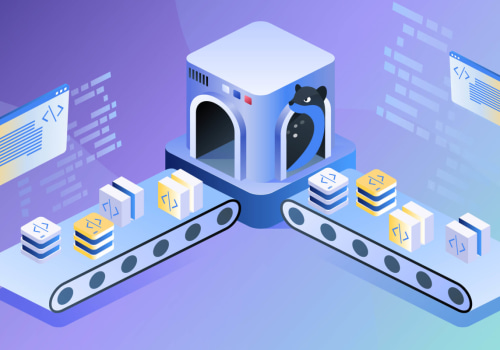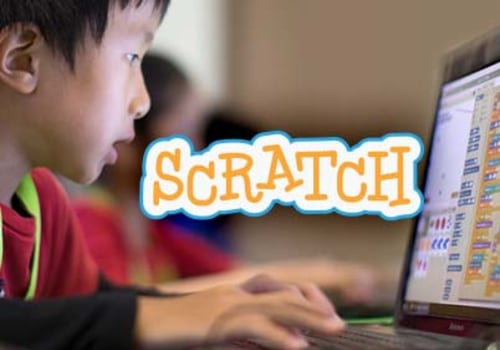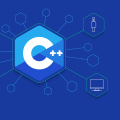GitHub and GitLab are two of the most popular open source project hosting websites out there. Whether you're a seasoned programmer looking to work on new projects or a beginner just getting started with coding, these platforms offer a wealth of opportunities for collaboration and growth. If you're interested in contributing to open source projects as a beginner coder, these platforms are the perfect place to start. But getting started with open source projects can be intimidating – where do you even begin? In this article, we'll provide you with the tools and advice you need to get up and running with open source projects on GitHub and GitLab. GitHub and GitLab are two of the most popular open source project hosting websites out there. Whether you're a seasoned programmer looking to work on new projects or a beginner just getting started with coding, these platforms offer a wealth of opportunities for collaboration and growth. If you're interested in contributing to open source projects as a beginner coder, these platforms are the perfect place to start. But getting started with open source projects can be intimidating – where do you even begin? In this article, we'll provide you with the tools and advice you need to get up and running with open source projects on GitHub and GitLab.
We'll cover how to find projects, how to set up your development environment, and how to collaborate effectively with other developers. By the end, you'll have the knowledge you need to become an active member of the open source community!
Resources for Further Reading
If you want to learn more about open source development, there are many resources available to help. Books like Open Source Development with LAMP: Using Linux, Apache, MySQL, Perl, and PHP or The Art of Community: Building the New Age of Participation provide an overview of open source principles and best practices. Websites like OpenHatch, GitHub Guides, and GitLab's Community page offer tutorials, tips, and other helpful information. Additionally, blogs like OpenSource.com, Opensource.org, and Open Source Initiative's Blog provide news and updates about the world of open source development.What are Open Source Projects?
Open source projects are collaborative software development projects that are made publicly available and distributed under a license that allows users to study, change, and distribute the software to anyone and for any purpose. Open source projects are collaborative software development projects that are made publicly available and distributed under a license that allows users to study, change, and distribute the software to anyone and for any purpose. development projects that are made publicly available and distributed under a license that allows users to study, change, and distribute the software to anyone and for any purpose. Open source projects are collaborative software development projects that are made publicly available and distributed under a license that allows users to study, change, and distribute the software to anyone and for any purpose.Open source projects benefit both users and developers by allowing the software to be used, studied, and modified freely, leading to greater innovation and collaboration. Open source projects are usually managed through version control systems such as GitHub and GitLab. This allows for multiple developers to work on the same project simultaneously and for changes to be tracked and easily reverted if necessary. This also allows users to access the code and make their own changes or even contribute to the project directly. Open source projects can be beneficial for both users and developers. For users, open source projects provide access to software that is often free and of high quality.
For developers, open source projects provide an opportunity to collaborate with other developers and gain experience in a real-world environment.
Tips for Successful Open Source Contribution
Open source projects rely on volunteer contributors to help build and maintain the codebase. As such, it is essential that those who are new to open source projects understand some of the basics for successful contribution.Research the project:
The first step in successful open source contribution is to research the project you plan to contribute to. Make sure you understand the project’s goals and objectives, as well as the existing codebase.This will help you avoid wasting time and effort on contributions that are not in line with the project’s objectives.
Be respectful:
When contributing to an open source project, it is essential to be respectful of other contributors and maintain a professional attitude. This includes refraining from personal attacks, trolling, or any other type of disrespectful behavior.Stay active:
It is important to remain active in the project after you have contributed.This includes responding to questions and comments from other contributors, participating in discussions, and staying up-to-date on changes within the project. Being active in an open source project helps build relationships with other contributors and helps ensure that your contributions are well received.
Contributing to a Project
Contributing to a ProjectOnce you have familiarized yourself with GitHub and GitLab, you can start contributing to open source projects. Contributing to a project can take many forms, but generally includes creating issues, submitting pull requests, and commenting on existing issues.Creating an issue is the process of submitting a bug report or feature request to a project. To create an issue, you simply describe the problem or feature you would like to see added and submit it to the project. The maintainer or contributor will then review it and decide what action to take. Submitting a pull request is the process of proposing a change to a project. This can be anything from fixing a bug or adding a feature.
When you submit a pull request, the maintainer or contributor will review your code and decide whether or not to accept your changes. Finally, commenting on existing issues is a great way to get involved in an open source project. Commenting on issues is a great way to provide feedback, suggest solutions, and help others understand the project better.
Setting Up Your Account
Setting up a GitHub or GitLab account is the first step to getting started with open source projects.To get started, simply create an account on either website. Once you've done that, you'll want to create a profile page. This page will contain your contact information and any other information you would like to share with potential collaborators. Once your profile is created, you'll also need to upload your SSH keys.
SSH keys are used to authenticate and authorize your access to repositories. They are used to securely transfer data between two computers and to protect your credentials when accessing remote systems. To generate an SSH key, you can use a command-line tool such as ssh-keygen or use the GitHub or GitLab web interface. Once your SSH key is generated, copy the contents of the public key file into your GitHub or GitLab account settings.
This will enable authentication when you clone or push changes to a repository. It is important to keep your SSH key secure, as it can be used to access any repository you have access to.
Finding Interesting Projects
Finding interesting open source projects to contribute to can be daunting, but there are tools and directories that can help. Search tools such as GitHub and GitLab allow users to search for repositories based on keywords and phrases. Additionally, project directories such as Open Hub and SourceForge provide an extensive selection of projects and allow users to filter their results by language, license, or other criteria. When searching for repositories, it is important to consider the size and activity of the project.Projects with a large number of contributors, frequent commits, and a significant amount of documentation are likely to be well-maintained and welcoming to new contributors. It is also important to read the project’s README file, which provides information about how to contribute and expectations around code style. Exploring project directories can be a great way to find interesting projects. Most project directories allow users to filter their results by language, license type, or other criteria. Additionally, many project directories feature open source libraries and frameworks that may not be featured on GitHub or GitLab. Finally, one of the best ways to find interesting projects is by joining developer communities.
Online forums such as Stack Overflow and Reddit often feature discussions about open source projects and can provide an invaluable resource for finding interesting projects. In conclusion, open source development is an important part of the software development landscape. With the knowledge provided in this article, you should now be able to confidently find and contribute to open source projects on GitHub and GitLab. Setting up your account, finding interesting projects, and contributing to a project can seem daunting at first, but with a bit of practice, you will be well on your way to becoming a successful open source contributor. Additionally, there are plenty of resources available to help you expand your knowledge and hone your skills.
Open Source Projects, GitHub, GitLab, Setting Up Your Account, Finding Interesting Projects, Contributing to a Project, Tips for Successful Open Source Contribution, Resources for Further Reading.











